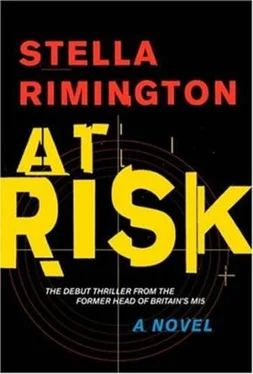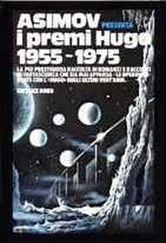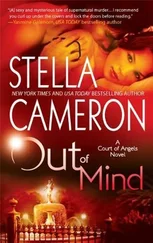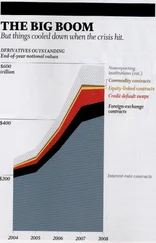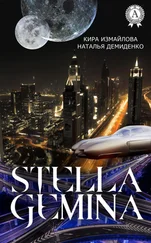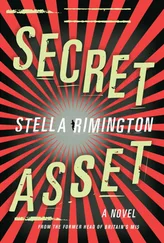Faraj, by contrast, appeared untouched. He gave the impression that his physical state had at some point been unharnessed from his will, so that neither pain nor fear nor tiredness played any part in his reckoning. There was just the mission, and the strategy required for its execution.
Jean watched him, and insofar as she was capable of a response at that moment, the austerity of his self-control impressed her. It also profoundly frightened her. There had been times, particularly at Takht-i-Suleiman, when she had been certain that faith and determination had empowered her in the same way. Now, she was sure of nothing. She had been reborn, certainly, but into a place of utter pitilessness. Faraj, she realised, had occupied that place for a long time.
Distantly, perhaps five miles away, the pulse of a helicopter. For a moment neither of them moved.
“Quick!” said Jean. “Under the bridge.”
Leaving the rucksacks beneath the tree, they scrambled down the steps to the narrow towpath, and hurled themselves at the sodden canopy of brambles. Thorns tore at Jean’s face and hands and then they were through, crouching in near darkness beneath the arch. There, but for the echoing drip of water, all was silence. She could feel blood on her face.
After about a minute the sound of the helicopter returned, louder this time, perhaps three or four miles away, and even though she knew herself invisible and far from the range of their viewing equipment she shrank against the bridge’s curving brick wall. The pulse was steady for a few seconds, and then the sound fell away.
As Faraj looked into the shadowed dimness of the river, Jean peered through the arch of the bridge and the dark hatching of foliage at the sky. The light was going fast. Close to tears of exhaustion, shaking with cold, she began picking the thorns from her cheek and the back of her hand. “I think we should get the bags down and lie up here for the night,” she said tonelessly. “They’ll keep the helicopters up, but their infrared cameras can’t read a heat signature through brick and concrete.”
He glanced at her suspiciously, detecting the defeat in her voice.
“If we’re caught in the open,” she pleaded, “we’re dead. Dead, Faraj. Here, at least we’re invisible.”
He was silent, considering. Eventually he nodded.
Liz was about to go online and decode her e-mail when, from the corner of her eye, she saw Don Whitten fold forward and bury his head in his hands. He held the position for perhaps a second before, his face contorted and his fists clenched, silently swearing at the distant roof of the hangar.
There were now eighteen men and three women in the hangar. Six of the men were Army officers, and all of these except Kersley, the SAS captain, were in combat dress. Of the three women one was a Royal Logistics Corps officer, one was local CID, and the other was PC Wendy Clissold. As one, they all fell silent and stared at Whitten.
“Tell us,” said Dunstan, levelly.
“Young man named Martindale, James Martindale, has just reported a twenty-five-year-old racing-green MGB stolen from outside the Plough pub in the village of Birdhoe. Could have happened any time after twelve fifteen this lunchtime when he arrived at the pub.”
There was a collective exhalation-a sound of extreme frustration. It was too much to hope for that the theft of the car was unrelated to D’Aubigny and Mansoor. Whitten reached glumly for his cigarettes.
“Birdhoe, as most of you know, is half a mile the wrong side of the roadblock. They must have outrun us across country while we were setting things up. And now they’ve got four hours’ bloody start on us. They could be anywhere.”
The Army officers looked at each other, tight-lipped. Two battalions of regular and TA soldiers and half a dozen Lynx and Gazelle helicopters were still in deployment in the northwestern sector.
“This man Martindale,” said Steve Goss. “He’s been in the pub all afternoon?”
“He and his fiancée went to the Plough for lunch, he says, and ended up stopping there to watch the rugby on TV.”
“Wait,” said Mackay, craning his head to where Liz was sitting, her fingers poised over her laptop. “A racing-green MGB? We passed one! I told you I used to-”
“Teal blue? The Moneypenny-magnet?”
“Yeah, that’s the one-where were we? Let’s look at that screen. We’d driven southwest from here, been going what, fifteen minutes? Must have been somewhere near Castle Acre or Narborough. So if our appointment at Marwell was for two p.m., and that was the right car we saw-and there aren’t many of that vintage and colour on the roads these days-then it puts our two terrorists near Narborough at approximately one forty-five. Two and a quarter hours ago. You’re right,” he addressed Whitten, “they could be in London or Birmingham by now.”
“But why steal such a recognisable car?” asked Liz.
The police looked at each other. “Because they’re easy to hot-wire, love,” said Whitten. “Most cars less than twenty years old have an automatic steering lock. You can break the lock by jemmying the wheel around, but it takes a bit of strength. Which points to the girl doing the taking away, I’d say.”
“OK. Point taken. Surely, though, that makes it a bit of a last resort? A desperate dash to get the hell away from the roadblock. They couldn’t have known the owner was going to sit in the pub all afternoon; they had to proceed on the assumption that he might come out looking for his car at any moment, find it gone, and dial 999 straight away. They certainly wouldn’t have risked driving into a major city in an immediately recognisable car that, for all they knew, every policeman in the UK was looking for.”
Dunstan nodded. “I agree. They’d allow themselves an hour’s drive at most, sticking to minor roads, then they’d ditch the vehicle.”
“An hour’s drive on minor roads takes them to RAF Marwell,” said Mackay quietly.
No one replied. The woman police officer manning the display computer generated a red line on the map. It moved southwards from Dersthorpe Strand, crossed the blue line representing the roadblock, and passed through Birdhoe and Narborough to Marwell. The line was vertical, and almost dead straight.
“Let’s suppose that Marwell is their target,” said Dunstan, looking around him. “It’s a fair guess that (a) they’re not going to drive too close to a secure government establishment in a stolen car, and (b) they ditched the car within an hour of passing through Narborough. That puts them right now either to the east of a five-mile circle surrounding Marwell, or to the west of it. Lying up out of sight, I should think-they’ve had a pretty stressful day. Either that or preparing to walk up to the target-they’re certainly not going to risk stealing another car at this juncture.”
Whitten crushed out his cigarette. “So what do you suggest?”
“That we draw two rings around Marwell. Establish an inner circle, radius five miles, which we saturate with police, Army and TA personnel right now. Give them night-vision goggles, searchlights, whatever they need… Basically, no one gets past.”
A balding man in the crown and star insignia of a lieutenant colonel made a swift calculation with a pencil. “That’s about eighty square miles in total. If we pull in all the search parties from the northwest sector, bring up another battalion…”
“And outside that,” Dunstan continued, “a further ring, five miles wide-that’s a two hundred square mile area-which we and our Army Air Corps friends overfly all night using thermal-imaging…” He looked around him for approval. “Anyone got a better idea?”
There was silence.
Читать дальше
